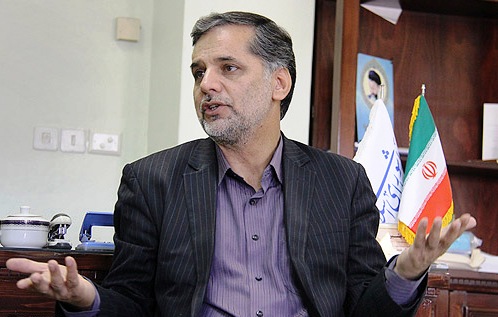
RNA – In an exclusive interview with Rasa News Agency, Dr. Sayyed Hoseyn Naqavi-Hoseyni, A member of the National Security and Foreign Policy Commission of the Iranian Parliament, explained that the United States’ history of interference in Iranian affairs began in the 1930s. In the subsequent decades, the US quickly became known for their crimes, threats, sanctions, coup d’états, military attacks and mass murder cases against Iran and its people.
He explained that Iran has not witnessed anything positive from the US since their tumultuous relationship began, and added that according to the late founder of the Islamic revolution in Iran, Imam Ruhollah Khomeini, the only positive action by the US was that it cut its relationship with Iran after the victory of the Iran’s glorious Islamic Revolution.
Dr. Naqavi-Hoseyni referred to the numerous American plots against the Islamic Republic of Iran throughout the 20th century, saying that on August 19, 1953, the Americans launched a coup to overthrow the popular government of Prime Minister Mohammad Mosaddegh, which led to 26 years of dictatorship in the country and the formation of SAVAK, the Shah’s infamous intelligence agency. SAVAK killed or silenced the voices of Iran’s best youth, clergymen, workers and trade unions.
The member of Parliament referred to the US’ malice against the Islamic Republic of Iran, noting: “The attacked our country and launched the Operation Eagle Claw in Tabas, launched the Nojeh coup plot in 1980 and imposed the Iran-Iraq War on us through their support and incitement of Saddam’s regime.”
He continued saying that in 1988, the Americans shot down Iran Air Flight 655, which was a civilian flight, and then awarded the generals who were responsible for the murder of 290 innocent people. “After the Iran-Iraq War, the American’s plots intensified and a variety of forms of pressure and sanctions were imposed against Iran to bring people to their knees,” he said.
Dr. Naqavi-Hoseyni said that Americans still looking for ways to influence Iran, saying that negotiations between Iran and the P5+1 group of countries were good for the Americans because they assumed that once they reach an agreement with Iran, they will regain the same political, economic and cultural influence that they had with Iran before the 1979 Islamic Revolution.
The Iranian politician said that the Supreme Leader of the Islamic Revolution, Ayatollah Sayyed Ali Khamenei, warned that this issue must be managed intelligently and added that he has noted several times during the negotiations that after their conclusion, we have no need for further negotiations as we have closed their path of influence in Iran.
He explained that despite the US’ black record, some Iranians still have hope that Washington will help the people of Iran and that this hope, either based on ignorance or conscious thoughts, is surprising for Iranians, because based on their statements, they lead happy lives in Iran.
Dr. Naqavi-Hoseyni said that the Supreme Leader reiterated in recent statements that Iran will never allow this superpower to threaten it or to enter it. He stressed that the US is known for nothing except for treason, pillaging, coup d’états and bloodshed among the Iranian people.
He added that some Iranians are happy that several foreign embassies have reopened or will reopen in the near future and still hope that Iran will open its doors to the US and renew its relationship with Washington like it has with other countries. “These thoughts are an injustice to the rights of the Iranian people,” he warned.
111/112